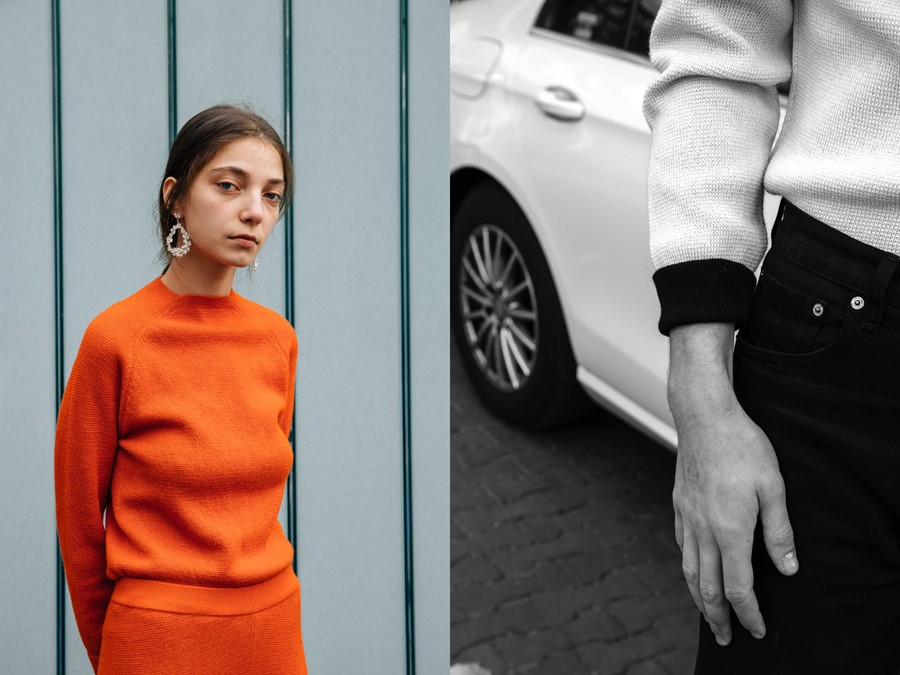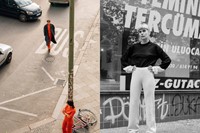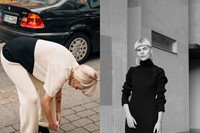Carcel’s timeless pieces are made by women in prisons in Peru and Thailand using high-quality local materials
- Who is it? Copenhagen-, Peru- and Thailand-based brand Carcel
- Why do I want it? Timeless pieces rendered in the world’s best materials by women in local prisons, for fashion at once sustainable and ethical
- Where can I get it? On the Carcel website, plus a capsule collection launches on eco-shopping platform Sardin this week
Who is it? It seems fitting that Veronica D’Souza, the Danish founder of Carcel, had the idea to start the label while living in Nairobi. Although D’Souza (CEO and founder) and Louise van Hauen (creative director and partner, who was living with D’Souza in Nairobi at the time) are now both based in Copenhagen, Carcel itself also counts Peru and Thailand as home. This is because of its premise: Carcel clothing is made by women in prison (hence the name; ‘cárcel’ means prison in Spanish). In Cusco, Peru, incarcerated women make knitwear using baby alpaca wool, while in the Thai city of Chiang Mai pieces are rendered in silk – both materials local to the regions. Having visited a women’s prison while she was living in Kenya, D’Souza found out that poverty is a key factor when it comes to why women commit offences that result in prison time. “Predominantly these women come from low income communities with low levels of education and are in a very marginalised position, and they end up committing a crime – like drug trafficking, theft, prostitution, all these types of non-violent crimes,” she says. D’Souza noticed that prison sentences often completed a cycle of poverty for the women, and started wondering “if you could transform that lost time into something productive”, with the incarcerated women employed and making products.
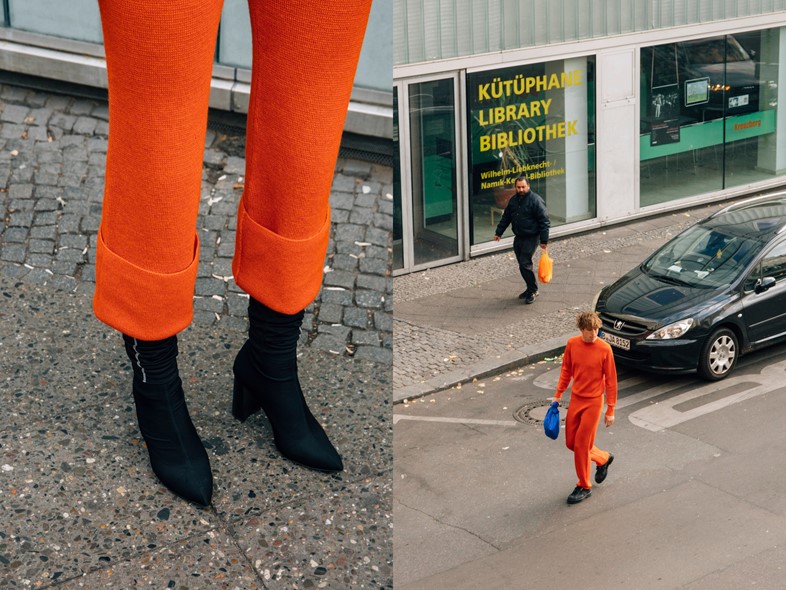
“So I kind of started mapping the world into countries that have the highest rate of poverty-related crime from women, but also the world’s most luxurious materials and a tradition for craft,” explains D’Souza. “Like where would you go if you were to make the best alpaca knit in the world? You would go to Peru.” Two years later – following visits to prisons in Peru and Thailand and backing from justice departments, prison authorities and NGOs in both countries – Carcel has production teams in Cusco and Chiang Mai, where its cosy knitwear and silk bags are fabricated. “I think it feels like an idealistic idea in a way – to want to change something for the better – but it is also very pragmatic, because it’s tapping into a resource,” says D’Souza.
While D’Souza’s background is in business (she says she “wanted to infiltrate capitalism when I was young,” and her studies focused on “social entrepreneurship and sustainable business, and new types of immersive business models”), Van Hauen came to Carcel from a design perspective; degrees from the London College of Fashion and the Royal College of Art led her to accessory design for Louis Vuitton and then a Kenyan label. A common, and key, interest for the two is reinvigorating the current retail cycle in fashion, which they both deem broken. Carcel works on a basis of small batches, pre-orders and only sells what’s produced, and does not adhere to fashion’s traditional season system. Collaborating with new “ecocentric” shopping platform Sardin, which operates using a 30-day pre-order system and an ever-changing handful of brands, meaning only what gets sold gets made, was a natural fit. Sustainability and eliminating waste are key here – for both Carcel and Sardin – but both are prioritised without compromising quality and desirability.
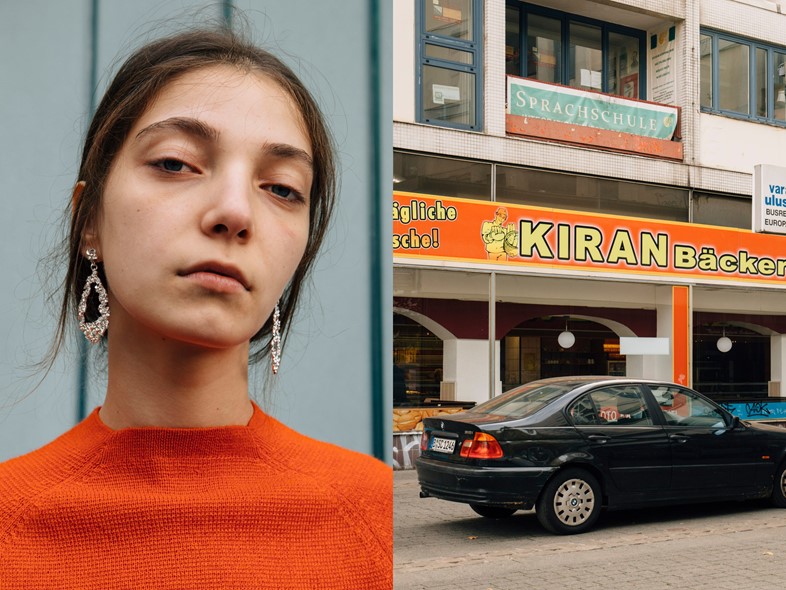
Why do I want it? According to Van Hauen, from the beginning she and D’Souza knew that “the genius of [Carcel] would be that it’s desirable products”. “I have a big passion for well-made things and crafty things, and you know, I think the Danish design tradition runs really deep in my blood,” she says. “I love the subtlety of something that is really simple and beautiful, with good material.” Carcel’s pieces transcend seasons, meaning there is no time constraint when it comes to the design and development process – something that Van Hauen has found very freeing. “We launch a product when we think it’s cool and ready and relevant, and I think that’s really exciting.” From its inaugural alpaca range, the ‘milano outfit’ – an irresistible combination of knitted jumper and lean trousers – and the ‘uni-tee’ offer classic silhouettes reinterpreted, given a little “face lift”. Baby alpaca wool (“the fibre of the gods”) is a sustainable alternative to cashmere, both sturdy and soft, with natural thermoregulating properties thanks to Peru’s mountainous temperature ranging from minus-20 to 30 degrees.
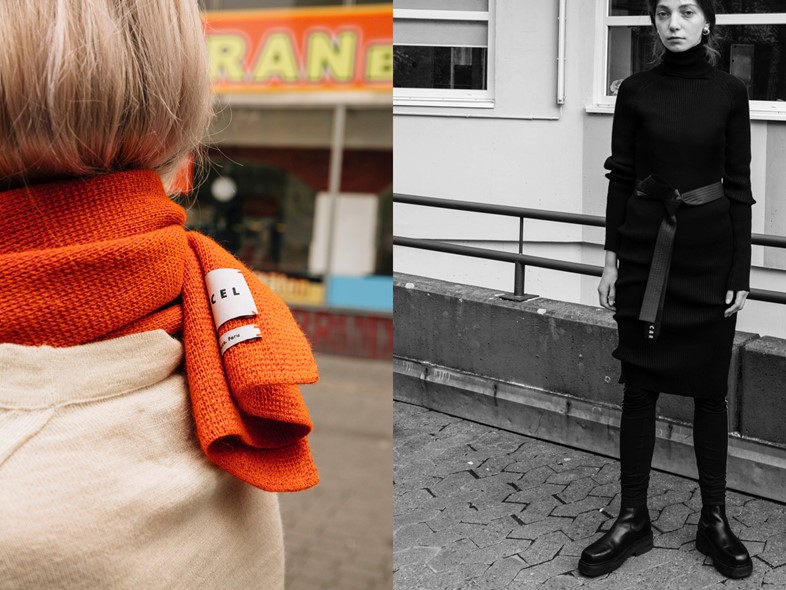
Moving forwards with silk products, a larger range of which launches early next year, the balance between conceptual and classic remains. Sweet silk ‘buck it’ bags rendered in lilac and jade, baby blue and burgundy and two further satisfying pairings are certainly desirable (not to mention Instagram-friendly) but not trendy in the sense that one might get tired of the drawstring handbag after mere months – there is a definite timelessness. So too the signature branding found with each Carcel piece: the woman who makes the product sews or embroiders her name on to the label or, as with the silk pieces from Chiang Mai, on the exterior in Thai cursive that doubles as a decorative detail.
Carcel celebrates the women and their stories, not only through information shared on the brand’s website but via people from the team on the ground in the prisons, with D’Souza and Van Hauen visiting often, deciding how the workspaces are run, and ultimately offering the craftswomen fair wages. “They are really strong and powerful, and really positive as well,” says D’Souza. “I really admire them a lot, and enjoy very much working with them. I have a lot of respect for their craftsmanship – they really care about doing great things and it gives them a lot of dignity. They don’t see themselves as victims, and I think that is extremely refreshing, actually.” The antithesis of fast fashion, Carcel has set up production sites in two countries in two years because there is a demand for covetable clothes produced on ethical terms, and with total transparency. D’Souza continues her mapping process, and while not confirming specifics says that other female prisoners from Romania and the UK have been in touch with Carcel suggesting they go there next. Watch this space.
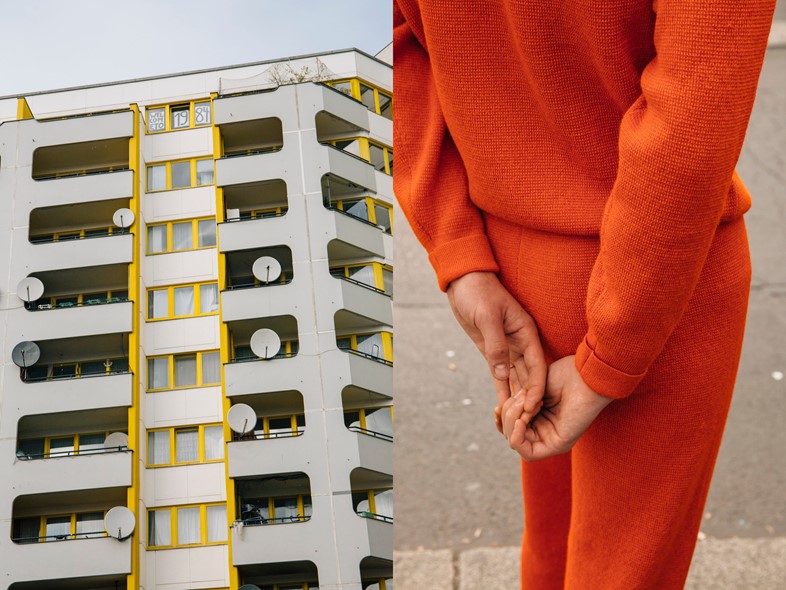
Where can I get it? Through Carcel’s website, on Net-a-Porter, and on Sardin from November 15, 2018.
